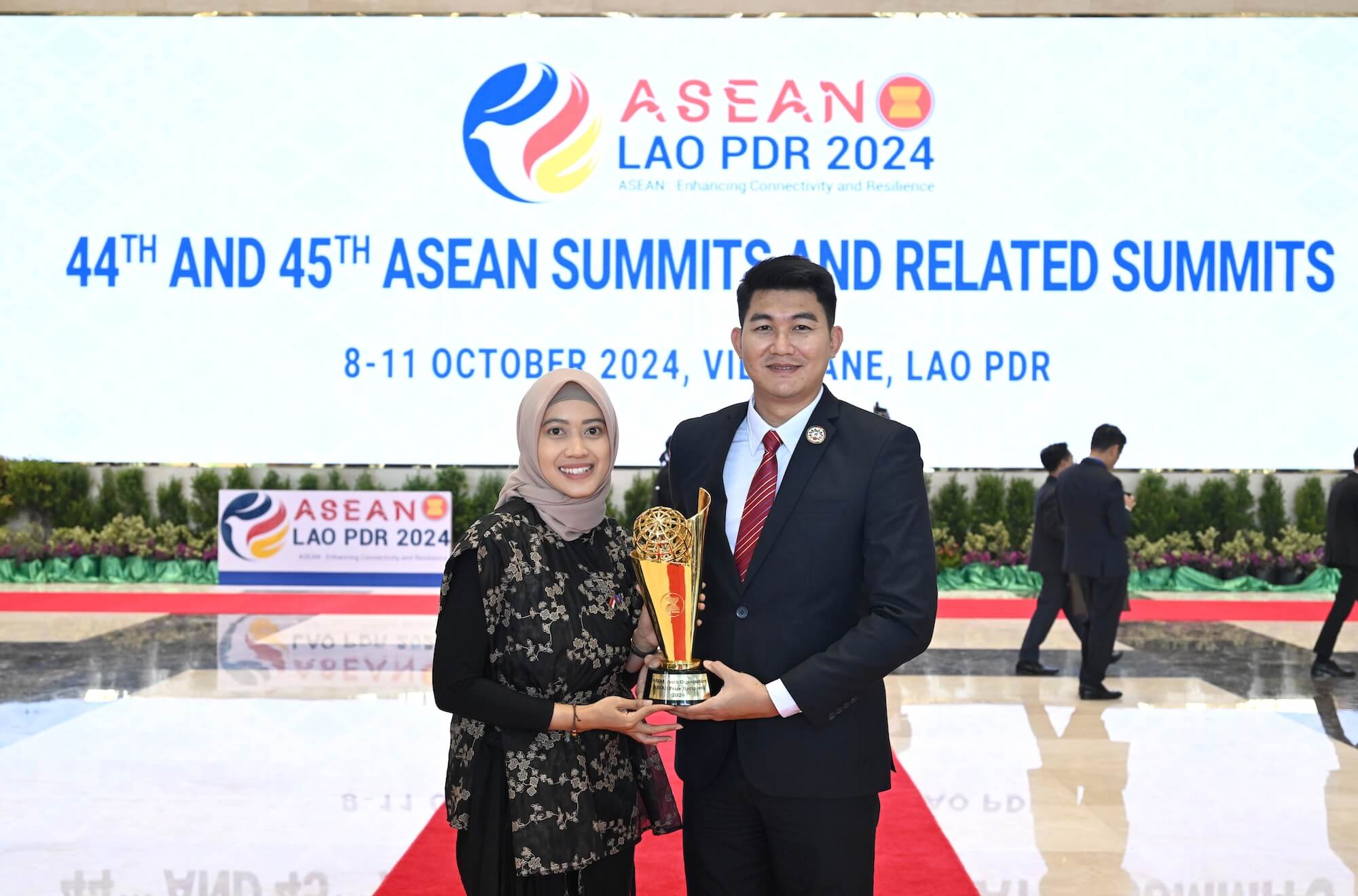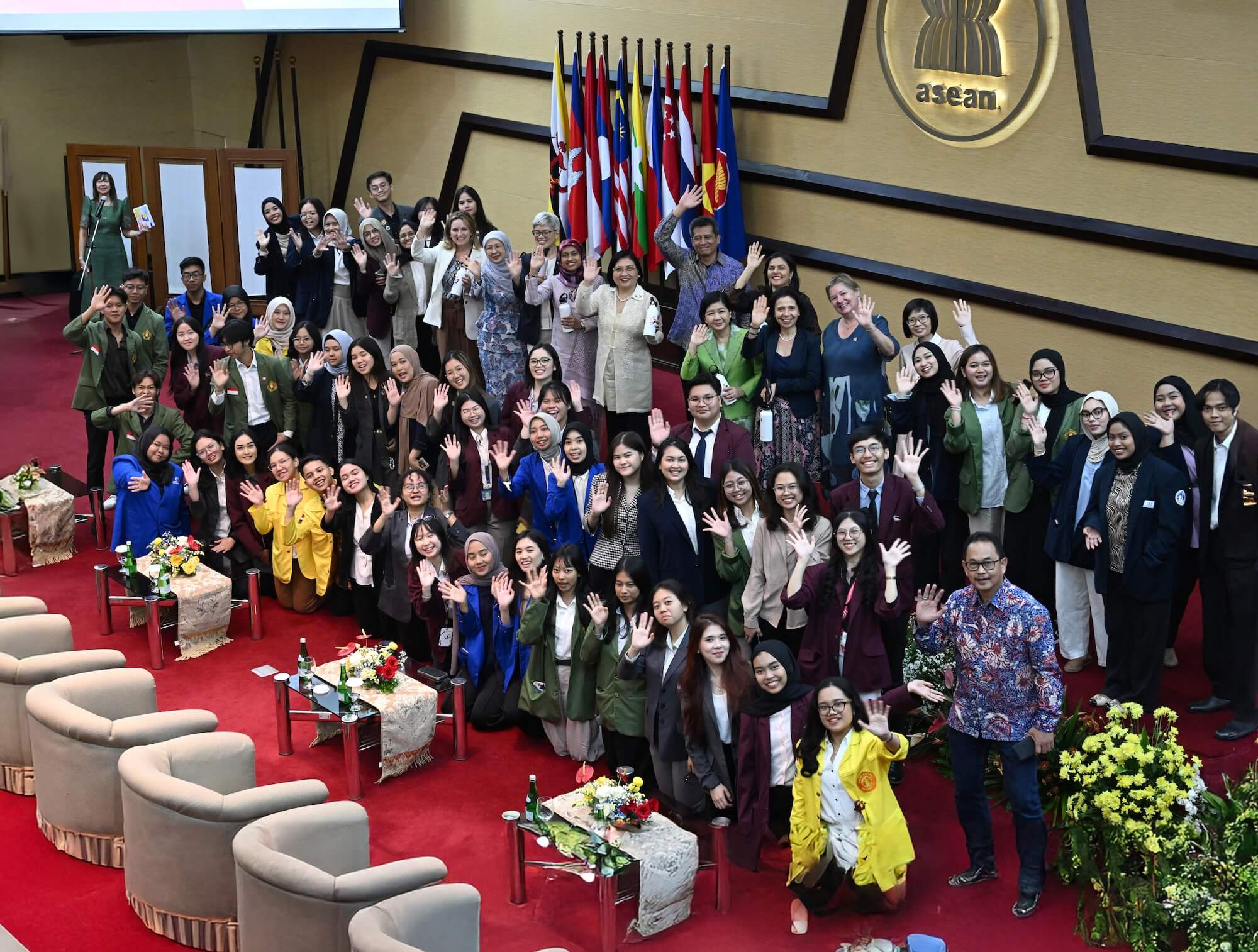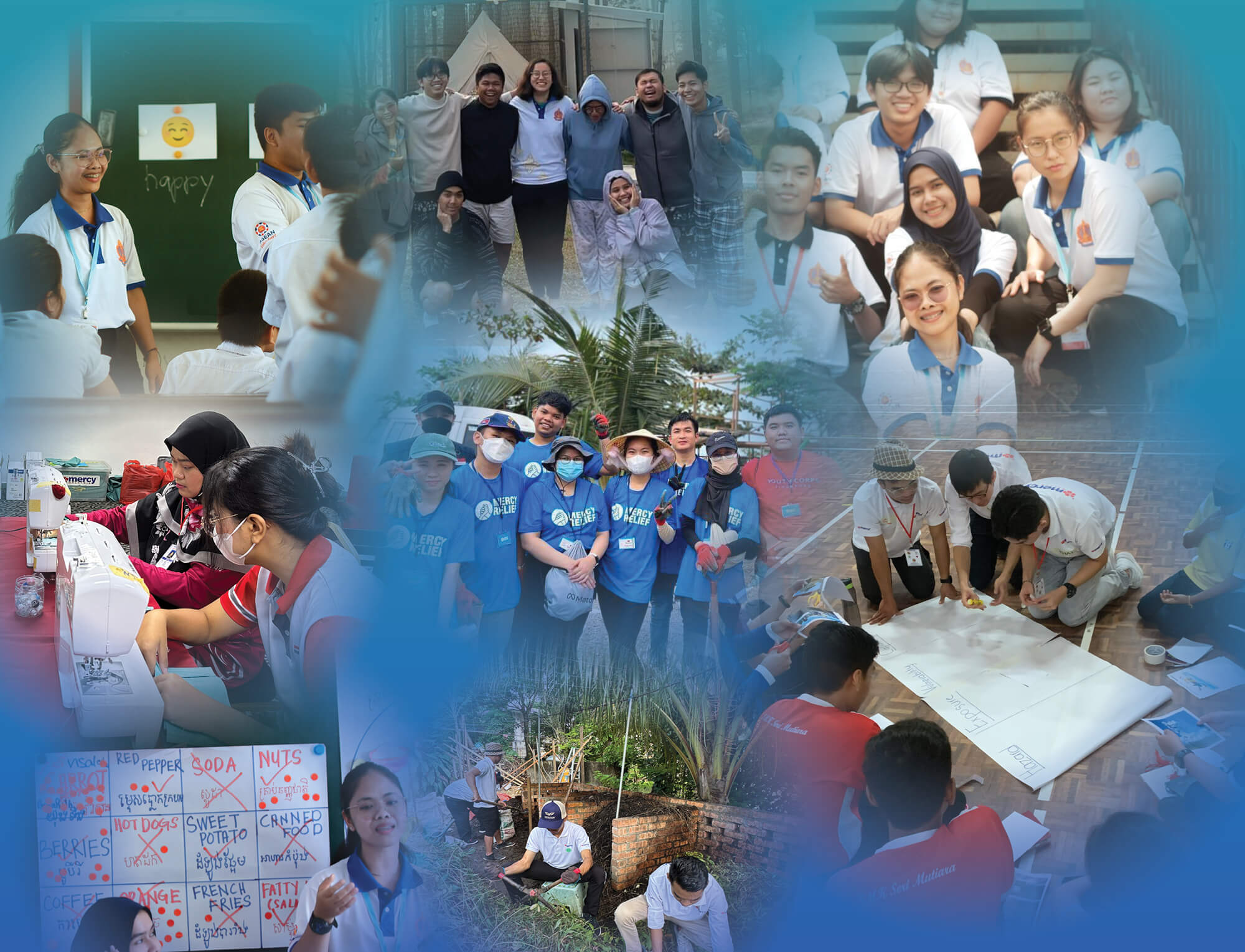



ASEAN youths are a tech-savvy demographic equipped with a growth mindset and blessed with abundant opportunities. Thus, they bear the important responsibility of making sure the regional digital economy continues to thrive. Their success may also be a key factor in the region’s recovery. But the right policies must be in place to provide them with the most up-to-date skills, reliable digital infrastructure, and enabling ecosystems if this is to be the case.
ince 2017, the World Economic Forum has surveyed some 60,000 youths aged between 16 and 35 from across the ASEAN region annually. The survey, a collaboration between the Forum and Sea, a Singapore-based global consumer internet company, aims to gain statistical insights into the views, priorities, and concerns of the region’s young population and thereby contribute to promoting data-driven policy-making processes in ASEAN.
Last year, the survey focused on examining the challenges that ASEAN youths faced while social distancing and exploring ways of coping with the disruptions caused by the COVID-19 pandemic.
Their adaptability and resilience stand out among the key findings
As governments imposed travel restrictions and social distancing throughout the region, youths in ASEAN did not just stay home. They stayed home and went online to continue studying, working, learning new skills, and even starting new businesses and new ways of doing business. Eighty-seven per cent of youths surveyed confirmed their increased use of at least one digital tool during the pandemic; 42 per cent picked up at least one new digital tool. Thirty-three per cent of the entrepreneurs surveyed have used e-commerce selling more actively during the COVID-19 pandemic. Of those, one in four was using it for the first time. Many have observed that these changes would have required years to achieve in a world without the pandemic. What is more, ASEAN youths confirmed that these changes are not temporary; they will permanently transform lives and livelihoods beyond the pandemic.
These youths have not only adapted to the new normal imposed by the pandemic, but many have also exhibited signs of a growth mindset, resilience, and nimbleness. When asked in 2019 about the relevancy of their skills, 66.6 per cent of respondents shared that their skills at the time needed to be updated constantly, either immediately or after five years; 9.2 per cent of them confessed that their skills were already out of date. Many of them also reported that the number one reason they would change jobs would be to learn new skills, showing their willingness to prioritise skills over salary. Stemming from this growth mindset, ASEAN youths took the opportunity during the pandemic to focus on improving both their hard and soft skills. In fact, 41 per cent reported having learned new skills. Reskilling and upskilling are popular among both students (with 64 per cent of full-time students surveyed saying they used online education tools more actively during COVID-19) and among workers (38 per cent of workers surveyed also confirmed their active use of online education during the pandemic), embracing the concept of lifelong learning.
The 2019 survey revealed that ASEAN youths were very confident about three sets of skills: resilience and adaptability, technology use, and creativity and innovation. The pandemic seems to have enhanced youths’ confidence in these skills even more: 38 per cent reported having learned to think creatively; 48 per cent confirmed having learned to be more resilient and prepared for future pandemics; notably, 31 per cent found new business models and new ways to increase income.
The survey also exposed significant challenges youths have been facing during the pandemic
Most (69 per cent) found it difficult to work or study remotely, with 7 per cent saying it was impossible. A lack of digital skills and the inadequacy/unavailability of quality and affordable internet connections were the greatest constraints, with 84 per cent of those not comfortable with using digital tools to do their job finding it difficult to work remotely.
The pandemic and the popularity of online education have created opportunities to build bridges between learners and trainers, but the overall situation is not that simple. Imagine a scenario where online learning sessions have been set up and all participants are ready and eager to start the session at the scheduled time. Yet, at that moment, the wi-fi signal of either or both parties affects the connection, causing continued disruptions during the hour and a half session. After weeks of experiencing such discomfort, the students or trainers feel the need to upgrade their internet package but cannot do so after finding out the cost is prohibitive. This is unfortunately, a very common scenario. The survey shows that many youths from Viet Nam and Indonesia identified with such difficulties: 88 per cent of respondents in Viet Nam said their internet connection was affordable, but only 17 per cent were happy with the quality; while in Indonesia, 29 per cent found the internet expensive and only 43 per cent reported satisfaction with the quality.
Furthermore, the pandemic has also imposed funding constraints on ASEAN youths in the gig economy and on young entrepreneurs: 33 per cent of those who faced funding constraints said they relied more on bank loans. In comparison, 31 per cent relied on government support and 23 per cent turned to online financing. Some 14 per cent had to turn to informal financing.
Even before the pandemic, ASEAN stood out as the fastest growing online market in the world, with 125,000 new users daily. Its internet economy surpassed the 100 billion US dollar-mark in 2019. Despite the pandemic and its detrimental impact on certain segments, the overall regional internet economy continued to grow in 2020 and is still poised to grow to over 300 billion US dollars in gross merchandise volume by 2025. ASEAN member states identified e-commerce and the digital economy as the key drivers of the region’s recovery in its recently endorsed ASEAN Comprehensive Recovery Framework. Several ASEAN countries aim to drive more than 20 per cent of their GDP from the digital economy by around 2025.
ASEAN youths are a tech-savvy demographic equipped with a precious growth mindset and blessed with abundant opportunities. Thus, they bear the important responsibility of making sure the regional digital economy continues to thrive. Their success may also be a key factor in the region’s recovery.
ASEAN as a region has seen its share of challenges and hardships over the years. However, throughout political and economic crises, conflict, and natural disasters, its people have maintained a keen sense of optimism and resilience and a strong will to move forward. Owning that nature, ASEAN youths will likely be able to turn this pandemic into a blessing in disguise, fostering innovation, prosperity, and inclusive and sustainable growth. Companies following the likes of Grab, Sea, and Tokopedia will grow and thrive in the region, particularly if the right policies are in place.
First and foremost, it takes the right skills to make anything happen. Talent has been reported for many years as a key block in the regional digital economy. It is more urgent than ever now to undertake a whole-of-society approach to address talent shortages and equip ASEAN youths with the skills the digital economy demands most. The World Economic Forum’s ASEAN Digital Skills Vision 2020, for example, has gathered pledges from 23 organisations to train more than 16 million people in the region with digital skills by the end of last year. The Forum is also exploring partnerships with several governments and businesses in the region to establish national Closing the Skills Gap Accelerators. Stakeholders in and outside the region should promote similar initiatives to boost the quality of the region’s talent pool. Investing in the skills of ASEAN youths would also contribute to promoting inclusiveness. This is because youth also play a positive role in spreading digital skills to other segments of the population, particularly to older (perhaps less tech-savvy) demographics, and play a pioneering role in seeding tech adaptation in populations who are at greater risk of being marginalised because they are in remote, rural areas.
Secondly, the region should invest intensively in improving its digital infrastructure. It is not possible to unleash the full potential of online education, e-commerce, other digital services, and the digital economy as a whole without quality and affordable internet access. The region’s digital infrastructure must accommodate the increasing bandwidth demand of the 40 million additional internet users who joined in 2020 and the many more who will join in the years to come, also noting that once they have joined, they will remain online and continue to connect, interact, learn, do business, and generate value for the economy.
Thirdly, the region should put in place a facilitating and enabling ecosystem to empower young entrepreneurs in ASEAN. The 2019 survey revealed that ASEAN youths strongly aspire to become entrepreneurs. Youths, in general, are full of innovative ideas and have a constant growth mindset. Still, they need agile and facilitating regulatory frameworks and funding to commercialise their ideas, to scale and expand their businesses, and ultimately to generate more jobs and more income. Yet, many young entrepreneurs are not ordinarily able to access bank loans. As governments are mainly allocating resources to respond to the impacts of the pandemic, regional entrepreneurs have only limited access to government funding. Alternative funding from the private sector could be a solution, but enabling regulatory frameworks must be put in place to pave the way for new funding models while also protecting the legitimate rights of young entrepreneurs. Similarly, cutting red-tape and simplifying relevant administrative procedures is also within reach of ASEAN governments and would enable young entrepreneurs to start and restart (if needed) their businesses quickly.
Agile governance is particularly crucial to creating the space for innovative ideas to flourish. The Agile 50, a joint initiative between the World Economic Forum Global Future Council on Agile Governance and Apolitical, honours the world’s 50 most influential people revolutionising governance. Six of the 50 individuals awarded are from the ASEAN region. The region needs more people like them to pioneer novel approaches to governance. It will transform government responses to rapid technological change in a way that promotes innovation and nurtures entrepreneurship for the public good.
ASEAN youths are full of potential. They are set to be the key contributor to ASEAN’s recovery, particularly by driving the region’s digital economy. But to unleash their full potential, they require support to gain the right skills and access quality and affordable digital infrastructure. They need to feel empowered by systems that enable and facilitate their endeavours.








